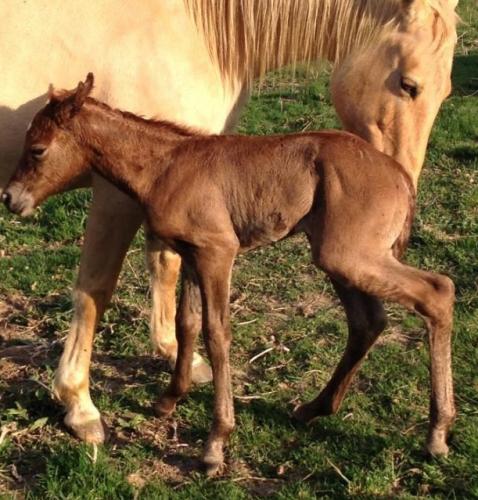Foal care: The first few hours of life
The first few hours of life are a very critical time frame for the overall health and wellbeing of a newborn foal.

Spring is here and some have long anticipated the new life arrivals on their respective farms. The first few hours of life are a very critical time frame for the overall health and wellbeing of a newborn foal. Often times, few are fortunate enough to observe the birth of a foal. However, if you are lucky enough to witness this extraordinary event, Michigan State University Extension recommends the following points of consideration and observations when evaluating a new foal in its first few hours of life.
- Foals should begin to breathe within 30 seconds of birth
- Respiratory rate should be 60 – 70 breaths per minute
- If you have the opportunity to get your hands on the foal
-
- Mucous membrane should be pink in color
-
- Capillary refill time should be two seconds or less
- The foal should be responsive to stimuli such as touch and noise
- The foal should begin the suckle reflex within approximately 20 minutes after birth
- Normal heart rate is 60 – 120 beats per minute, watch for the heartbeat through the chest wall
- Umbilical cord care
-
- Should be allowed to break on its own (typically, within 5 minutes after birth)
- Umbilical stump should be immediately dipped in chlorhexidine, handlers should wear disposable rubber gloves to prevent contamination of the umbilicus.
- Foals typically stand within an hour after birth and nurse within 2 hours after birth
-
- Allow the foal to bond with the mare if all appears well, it is important not to interfere with bonding and timely colostrum, a mare’s first milk, ingestion
- Foals should pass meconium, first feces, within 24 hours after birth
-
- Usually first 3 to 4 hours after birth
- Meconium is dark, greenish brown or black in color
- Pellets to pasty in consistency

Same foal as in first picture, standing 40 minutes after birth. Photo courtesy of Tom Guthrie, MSU Extension
Just a reminder to always remember safety, not only for the humans involved but for the mare and foal as well. This can be an exciting time and you certainly would not want to complicate the situation by being overly ambitious. Additionally, it is a good idea to have your veterinarian’s phone number on hand. Early detection of potential problems associated with the birthing process and/or abnormal observations of the foal coupled with prompt veterinary care are crucial to the overall outcome of a compromised foal.



 Print
Print Email
Email


